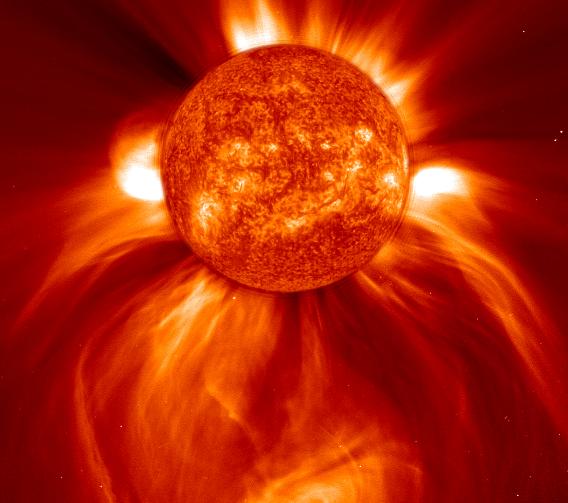Among other duties (coffee A.M, turn out lights P.M.) I think of likely (and more importantly, unlikely) scenarios of where the markets might be heading....Everybody starts with the basics, Tokyo earthquake, flu pandemic etc. but now it looks like it's back to the old algorithm
From The Register:
NASA warns of 'space Katrina' radiation storm
A study funded by NASA has flagged up yet another terrible hazard for those no longer able to get excited about nuclear war, global pandemics, terrorism, climate change, economic meltdown and asteroid strike. Top space brainboxes say that even if the human race survives all those, there is a serious risk of civilisation being brought crashing to its knees by a sudden high-intensity solar radiation storm.
Beware the space equivalent of Hurricane Katrina.
The new study, carried out for NASA by the US National Academy of Sciences, might tickle the palate of even the most jaded disaster connoisseur.
"Whether it is terrestrial catastrophes or extreme space weather incidents, the results can be devastating to modern societies that depend in a myriad of ways on advanced technological systems," says Professor Daniel Baker of Colorado Uni, an expert in atmospheric and space physics who led the report's authors.
In essence, the report, which can be downloaded in pdf here (free registration required) says that sooner or later there will be a solar storm much more powerful than any seen so far in the age of high technology. Such events have occurred in the past, but as the human race then had very basic electrical power grids (or none at all) and made no use of satellites, it didn't matter.
The next space radiation biggy, however, will hit a human civilisation which is becoming more and more dependent on satellites for essential communication and navigation tasks, and whose electrical grids are much more widespread and heavily stressed. The impact of a bad geomagnetic spike would be somewhat as though an unbelievably powerful electromagnetic pulse bomb - of the sort favoured by movie villains but not yet available - had gone off:
While a severe storm is a low-frequency-of-occurrence event, it has the potential for long-duration catastrophic impacts to the power grid and its users. Impacts would be felt on interdependent infrastructures, with, for example, potable water distribution affected within several hours; perishable foods and medications lost in about 12-24 hours; and immediate or eventual loss of heating/air conditioning, sewage disposal, phone service, transportation, fuel resupply, and so on ...Open access on the transmission system has fostered the transport of large amounts of energy across the power system in order to maximize the economic benefit of delivering the lowest-cost energy to areas of demand. The magnitude of power transfers has grown, and the risk is that the increased level of transfers, coupled with multiple equipment failures, could worsen the impacts of a storm event ...
In summary, present U.S. grid operational procedures ... are unlikely to be adequate for historically large disturbance events....MORE
Also at Space.com:
Perfect Space Storm Could be Catastrophic on Earth, Study Concludes
